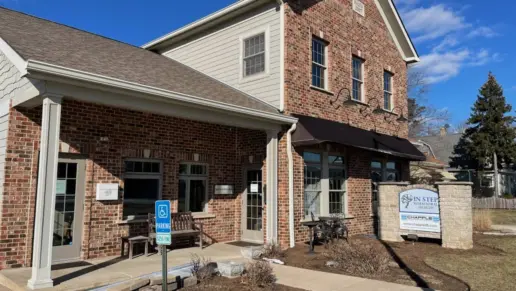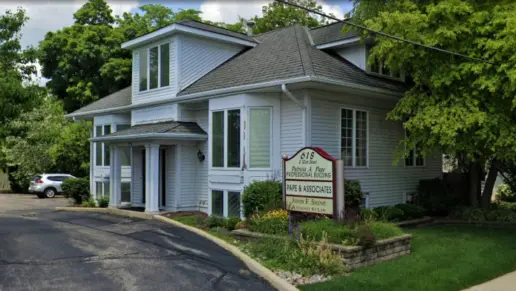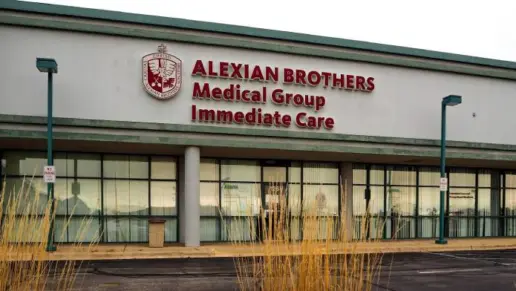About Portage Cragin Counseling Center
Portage Cragin Counseling Center is a part of the Lutheran Social Services of Illinois, offering addiction treatment and mental health services in an outpatient setting. Based in Chicago, Illinois, this facility was named for its surrounding neighborhoods, Portage Park and Belmont Cragin. Lutheran Social Services is the primary provider of mental health treatment for Chicago’s Northwest side. In addition to counseling and substance abuse treatment, this location has medication assisted treatment and DUI services.
Specialized Addiction Treatment for Teens
Portage Cragin Counseling Center helps tweens and teens in a specialized outpatient program to adjust to life without the use of drugs and alcohol. While in counseling groups, participants receive education on how to improve decision-making and build a healthy foundation for the future.
The clinicians work closely with family members, teachers and primary care physicians to ensure comprehensive support for each teen. Intensive outpatient programs usually meet for nine hours or more of treatment per week. Outpatient programs include under nine hours per week of addiction treatment.
DUI Services to Fulfill Court Orders
If you’ve been convicted of a DUI or similar offense this facility provides court approved treatment services. A 10-hour risk education course for minimal, moderate and significant risk levels is available via telehealth. This service begins with a DUI drug and alcohol evaluation. Then you will be recommended to attend early intervention services, outpatient treatment and intensive outpatient treatment based on the result of the evaluation.
DUI risk education and evaluations are not generally covered by insurance, but outpatient addiction treatment groups are.
Latest Reviews
Rehab Score
Other Forms of Payment
Medicaid is a state based program that helps lower-income individuals and families pay for healthcare. Medicaid covers addiction treatment so those enrolled can use their coverage to pay for rehab. When a program accepts Medicaid the client often pays very little or nothing out of their own pocket.
Private insurance refers to any kind of healthcare coverage that isn't from the state or federal government. This includes individual and family plans offered by an employer or purchased from the Insurance Marketplace. Every plan will have different requirements and out of pocket costs so be sure to get the full details before you start treatment.
Self-pay involves paying for treatment out of your own pocket. You can use savings or credit, get a personal loan, or receive help from family and friends to fund your treatment. If you don't have insurance or your insurance plan doesn't cover a specific program, self-pay can help ensure you still get the care you need.
Financial aid can take many forms. Centers may have grants or scholarships available to clients who meet eligibility requirements. Programs that receive SAMHSA grants may have financial aid available for those who need treatment as well. Grants and scholarships can help you pai for treatment without having to repay.
Medicare is a federal program that provides health insurance for those 65 and older. It also serves people under 65 with chronic and disabling health challenges. To use Medicare for addiction treatment you need to find a program that accepts Medicare and is in network with your plan. Out of pocket costs and preauthorization requirements vary, so always check with your provider.
Addiction Treatments
Levels of Care
 Outpatient
Outpatient
Treatments
Mental health rehabs focus on helping individuals recover from mental illnesses like bipolar disorder, clinical depression, anxiety disorders, schizophrenia, and more. Mental health professionals at these facilities are trained to understand and treat mental health issues, both in individual and group settings.
Programs

Adult Program

Young Adult Program
Clinical Services
Cognitive Behavioral Therapy (CBT) is a therapy modality that focuses on the relationship between one's thoughts, feelings, and behaviors. It is used to establish and allow for healthy responses to thoughts and feelings (instead of unhealthy responses, like using drugs or alcohol). CBT has been proven effective for recovering addicts of all kinds, and is used to strengthen a patient's own self-awareness and ability to self-regulate. CBT allows individuals to monitor their own emotional state, become more adept at communicating with others, and manage stress without needing to engage in substance abuse.
Research clearly demonstrates that recovery is far more successful and sustainable when loved ones like family members participate in rehab and substance abuse treatment. Genetic factors may be at play when it comes to drug and alcohol addiction, as well as mental health issues. Family dynamics often play a critical role in addiction triggers, and if properly educated, family members can be a strong source of support when it comes to rehabilitation.
Group therapy is any therapeutic work that happens in a group (not one-on-one). There are a number of different group therapy modalities, including support groups, experiential therapy, psycho-education, and more. Group therapy involves treatment as well as processing interaction between group members.
In individual therapy, a patient meets one-on-one with a trained psychologist or counselor. Therapy is a pivotal part of effective substance abuse treatment, as it often covers root causes of addiction, including challenges faced by the patient in their social, family, and work/school life.
Life skills trainings involve all the skills a person must have in order to function successfully in the world. These include time management, career guidance, money management, and effective communication. Truly successful addiction recovery is based on the ability to not only live substance-free, but to thrive. Life skills teaches the practical necessities of functioning in society, which sets clients up for success in life, and therefore sobriety.
Staff
Mark A. Stutrud
President & CEO
Teddy Umstead Foster
VP, Human Resources
Ruth Jajko
COO
David P. Novak
Chief Advancement Officer, & Executive Director, Cornerstone Foundation
Lisa Sroga
VP & CFO
Harry Vijayakumar
CIO
Terri Wilkerson
Associate VP of Organizational Development
Crissie Anderson
Executive Director for Quality, Compliance, & Data
Contact Information
4840 West Byron street
Chicago, IL 60641


